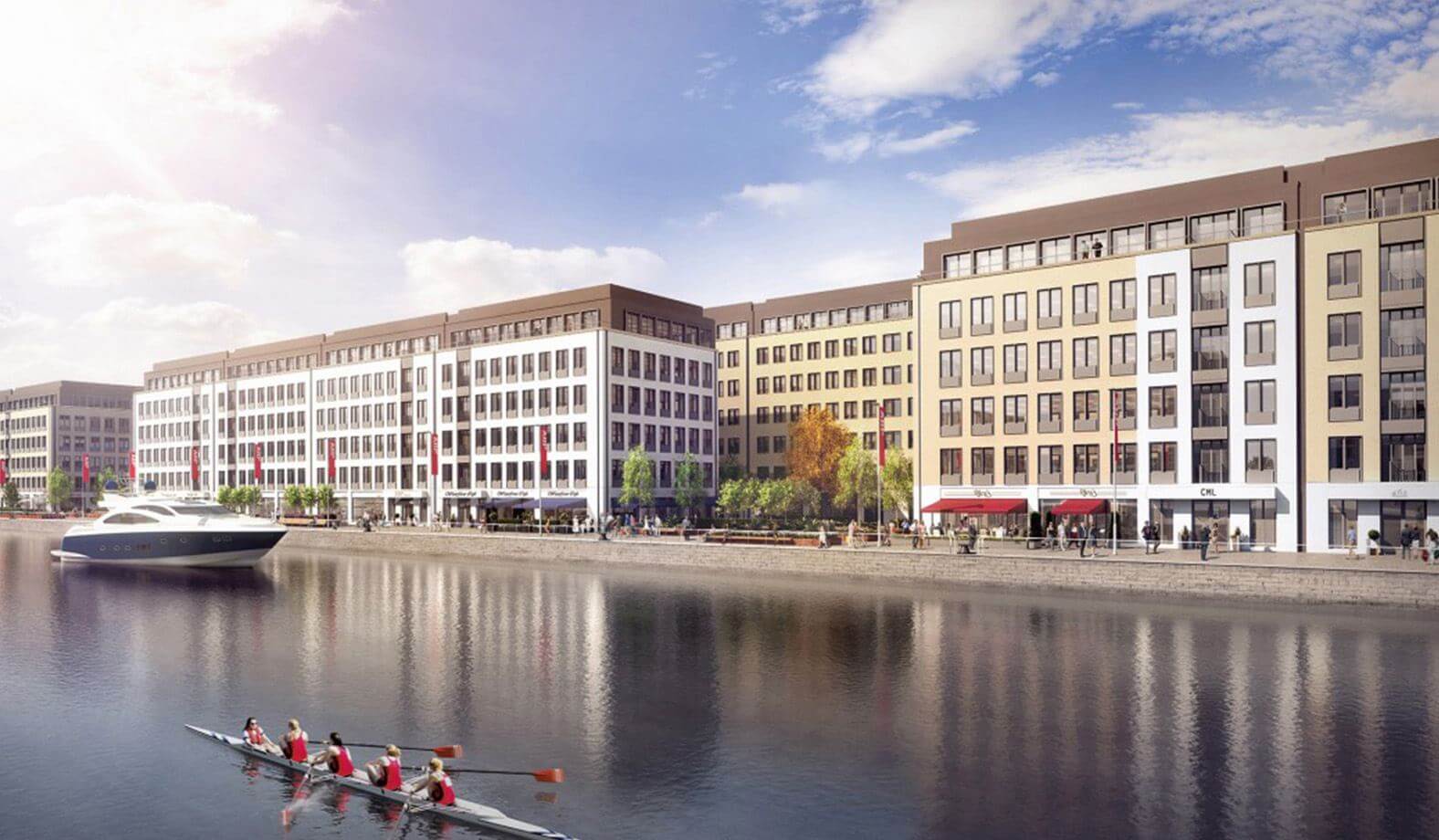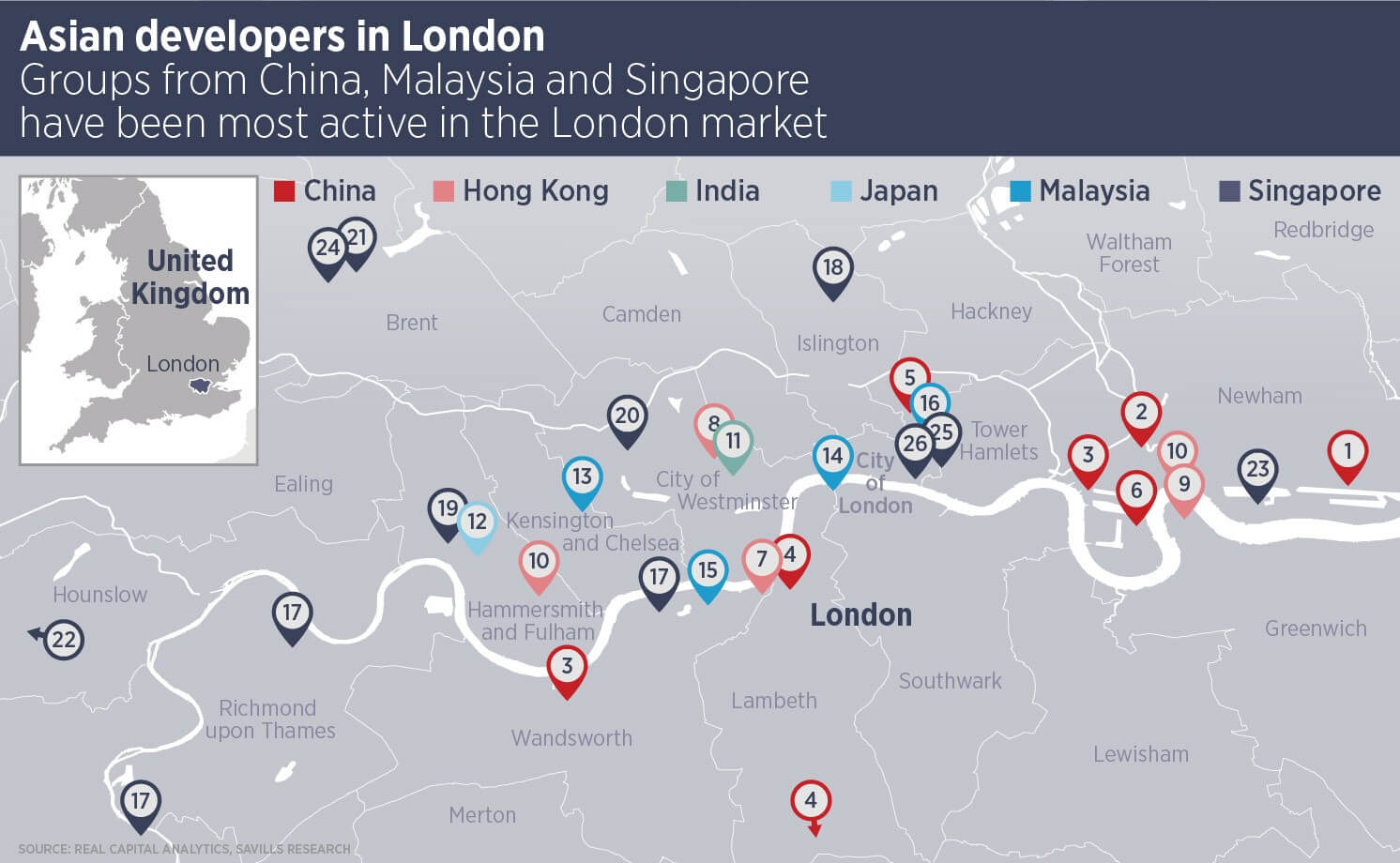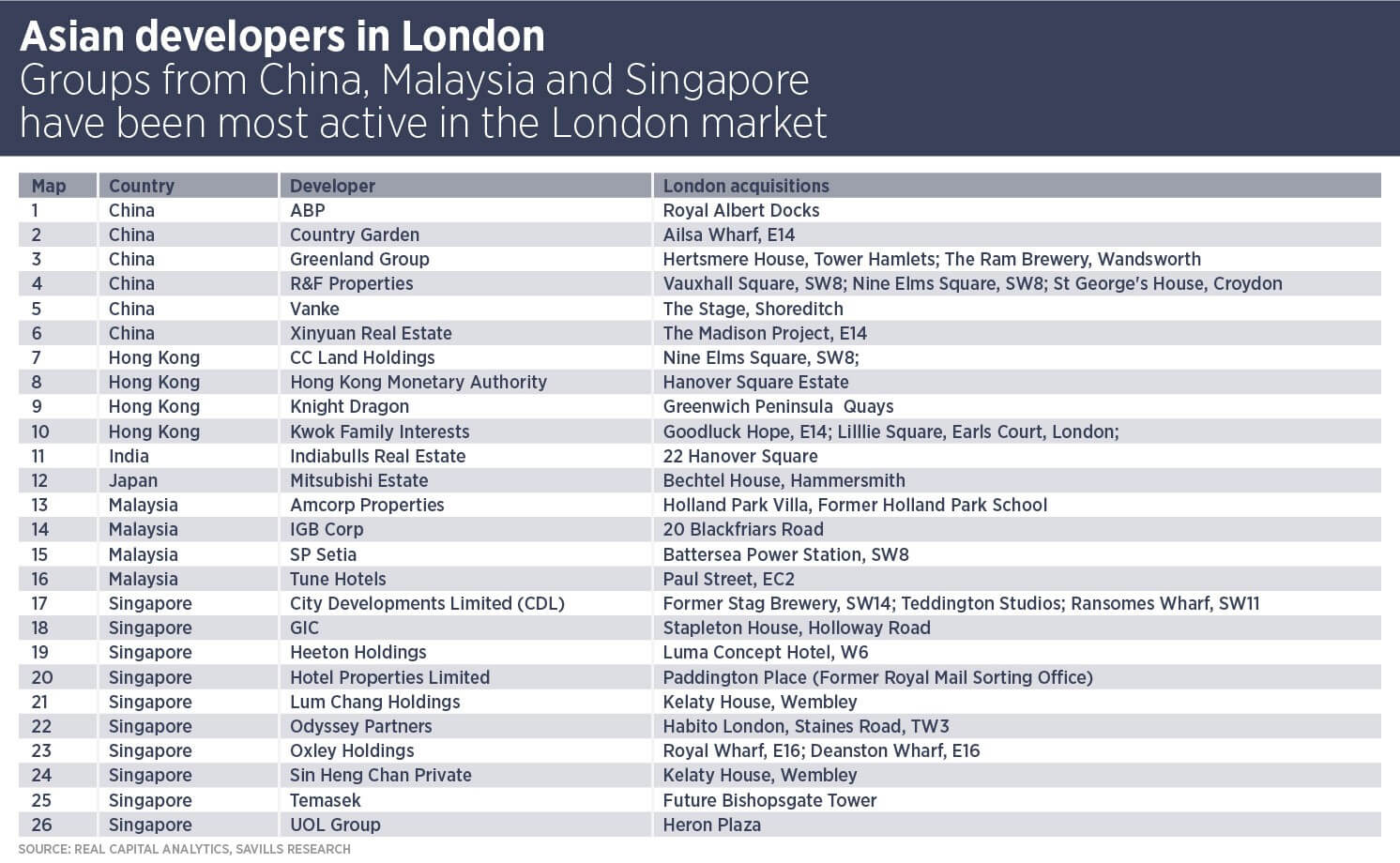
London still calling for Asian developers
Asian property developers have been investing billions of pounds into London property in the run up to the UK’s departure from the European Union.
Dozens of developers and large-scale investors from China, India, Hong Kong, Singapore, Malaysia and Japan are taking advantage of a near 20% fall in the value of the pound and growing political and economic uncertainty to take on some of the capital’s trickiest large-scale regeneration projects.
According to Savills research, in the first three quarters of 2018 Asian investors accounted for 60% of investment in the City of London (£4.77bn in transactions) and were responsible for nine of the 17 transactions which traded above £100 million. By comparison UK investors acquired 38 buildings in London in the first three quarters of 2018, double the number bought by Asians but only eight were for more than £50m.
Data from Real Capital Analytics shows that Asian developers have spent more than £2.2bnon London development sites between January 2013 and November 2018.
In March 2018 Xinyuan Real Estate, a Chinese property developer which builds and manages real estate projects in more than ten Chinese and US cities, announced it had signed a deal to buy the Madison Project at Marsh Wall, E14, with planning consent for 423 apartments. And in April 2018 Country Garden, a developer known for building more than 200 high end townships across China, Malaysia and Australia, bought Ailsa Wharf in Poplar, East London from Galliard Homes and Lindhill. ABP (Advanced Business Park Holdings), a Chinese developer, is redeveloping the Royal Albert Dock (pictured above) in East London into a 24 hour business centre catering to Chinese and Asian firms.

Asian developers hope to satisfy demand amongst Asian investors for UK property driven by London’s “safe haven status” and the expectation that prices and rents will continue to rise over the long term and to diversify their holdings globally.
Such developers also have balance sheet strength and experience of large scale mixed-use schemes, which are needed to unlock many of London’s most complex legacy sites.
Stephen Down, Savills Head of Central London and International Investment, says many developers are acting to supply a demand from their domestic markets who believe that London prices will bounce back post-Brexit.
“There had been fears that the London property market would suffer following the EU referendum, but the fall in the value of the pound led to a surge of buyers from Asia, who were also attracted by Britain’s property laws,” he adds. “The prevalence of Chinese investors in London in recent years, particularly those from Hong Kong, has been well documented.”
In August, Wanda, China’s largest commercial property company, pulled out of the £470m purchase of Nine Elms Square in south west London after regulators in Beijing issued new rules limiting overseas investment in property, hotels and other investments.
Mr Down says that this may slow further acquisitions by Chinese developers in the coming months, but it will not reduce demand from other Asian countries.
“Increased regulation of Chinese outbound investment has reduced the amount of Chinese capital targeting London in 2018. How these changes play out longer term remains unclear, but for now it is creating an opportunity for other nationalities to become more competitive,” he says.
Down says that he expects to see more activity from South Korean, Malaysian and Singaporean firms in the capital. Singaporean developers in particular have found more opportunities in London than at home for either developments or higher yielding investments, as City of London and West End prime office yields are 4% and 3.25% respectively, higher than in Singapore and also higher than in Paris or the main German cities.

Further reading:
Savills UK
Contact us:
Stephen Down



